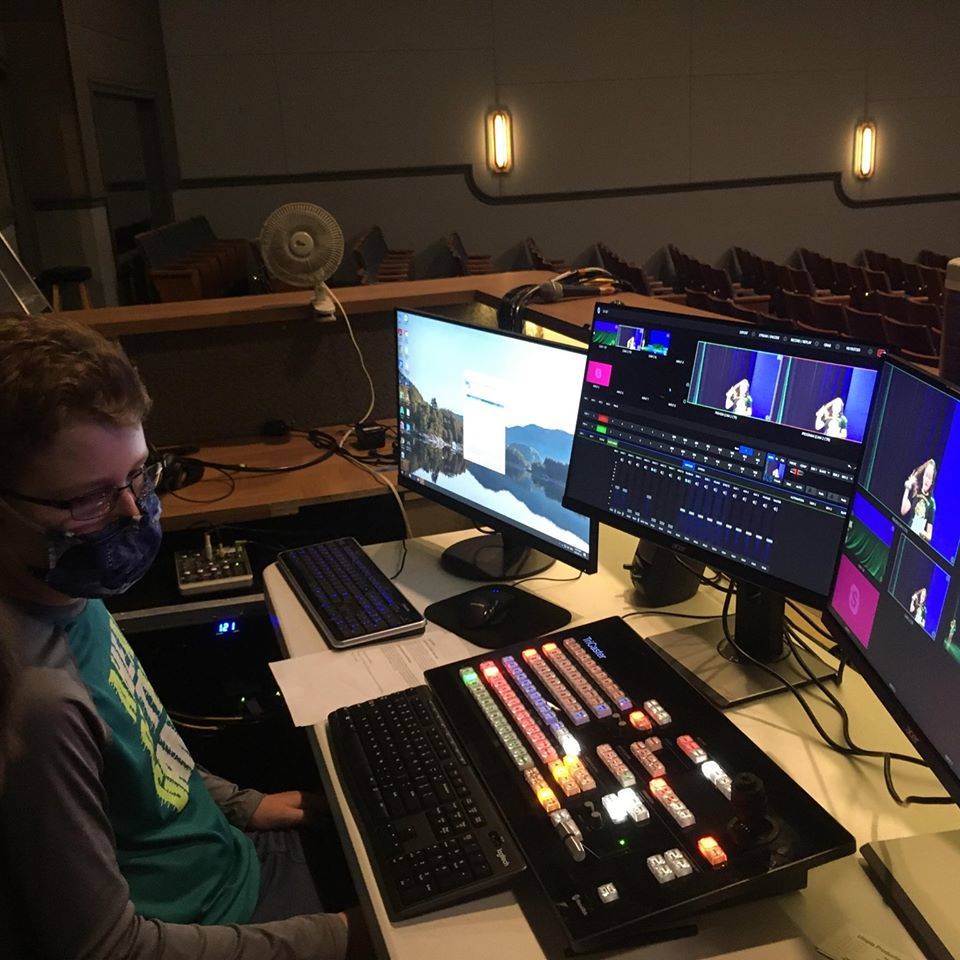Tidemark Theatre reinvents live performances with hybrid model

The Tidemark Theatre is having to reinvent the wheel in order to continue live performances in a pandemic-era.
On March 12, a band was playing on the stage at the theatre to a nearly-full house. The next day everything changed, and the Tidemark staff had to scramble to figure out whether they would ever be able to hold a performance again.
“We had a live band on stage when the health notice came in about audiences being 250 people or less. Our show the next day was over 250 people,” said Tidemark’s managing director Jim Kent. “Like all arts facilities, there was a good solid week of ‘Oh my god.’ It was the antithesis to what we actually do. We’re all about audiences and enclosed spaces, and here is a global pandemic that is forcing us to live a completely different way… We have a small and mighty staff who, once we all got over the shock, pretty quickly started rethinking how we could continue given the situation.”
The solution turned out to be technological.
Kent said they watched as live-streaming and video became the preferred form of communication as the pandemic began to take hold. They realized that they could tap into this technology and people’s appetite for content as a way to continue their business through an uncertain time.
“Laptops on kitchen tables, setups in people’s living rooms, that was engaging for a while, but the quality was not very great. So we thought ‘what if we don’t change so much what we do, but we just change how we deliver it?’” he said. “Out of that, [came] the digital-hybrid show. We can still fit 50 people and we can live-stream that performance on the internet. That’s how we came to understand what a hybrid show is.”
After a successful grant from the Island Coastal Economic Trust (ICET), the Tidemark Theatre was able to invest in technology that made high-quality live-streaming possible. Tidemark’s season ends every year in June. Then staff work through the summer to bring programming to the theatre in time for the new season, which opens in September. This year, since live events shut down in March, the theatre had a hard time trying to find the money needed to keep going. Any grant applications would have a multi-month waiting period before the applicants find out if they’re successful.
“That presented quite a bit of a problem,” Kent said. “ICET was a real help to turn those grant applications around so fast. It allowed us to basically get the equipment and install it on July 6. We were actually doing our first production with that equipment by July 11.”
That technology allows them to both stream events as they happen and to pre-record events for later dissemination. Their first foray into this new technology was a collaboration with the Vancouver Island Symphony, who is recording a series of concerts to go along with a live garden concert series. The package will be sold as a subscription and will be streamed to ticket holders at a future date.
“We did a private dance and school graduation at the end of June. We just started our first week of summer camp for 16 kids called ‘Weirder Things.’ That’s going very well. The kids are producing an event with all this new technology. We’re not performing it for a live audience, so it will be streamed out to their parents and family. They’re getting to work with that equipment and they’re pretty excited,” Kent added.
The theatre is also planning to use its new technology beyond the arts and culture realm. It will be partnering with business groups and other community organizations to help promote messages and different functions using its new hybrid model.
“Going this direction really is about the long term viability of the theatre and the community,” Kent explained. “It’s really important for us as community members to help facilitate getting back to ‘normal’ and to be a place where we can still facilitate that communication.”
In the end, it’s about an investment in an uncertain future. Kent does not expect things to get back to the way they were on March 12 for quite some time. People are still going to be nervous about going to shows, he explained. With hybrid shows, he hopes that arts and entertainment in Campbell River will continue to grow, while adapting to whatever may come of the world after the COVID-19 pandemic.
“In this particular situation, it’s a pretty stark choice,” he said. “Either we close the doors or carry on. In the present state of the pandemic and the world. We see this pandemic affecting our business for at least two years. Once the pandemic is over or declining, you’ll see an increase in audience participation back to an enclosed room, but it’s going to take a long time to get back to where we were on March 12.”
More information about upcoming hybrid shows will be available at the Tidemark’s website.
– Marc Kitteringham, Campbell River Mirror